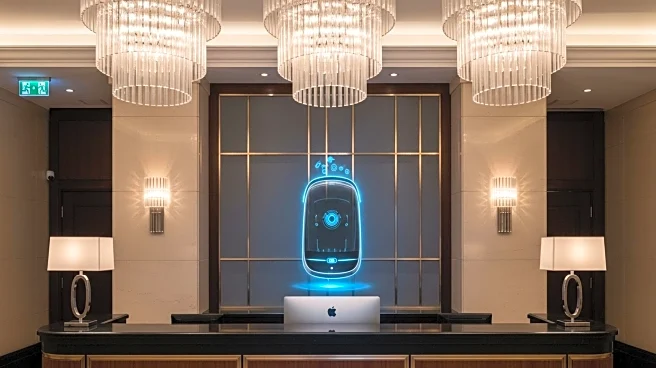What's Happening?
Travel Outlook, a hospitality contact center, is utilizing artificial intelligence (AI) to improve guest services in the hotel industry. The company has developed Annette, a virtual hotel agent, which uses conversational AI to provide personalized guest interactions. Annette is designed to handle reservations, inquiries, and recommendations with human-like qualities, such as using first-person pronouns and conversational tones. This approach, known as anthropomorphizing, aims to create smoother interactions and build guest trust. However, it also poses risks of misleading guests if they perceive the AI as a live person. The balance between human-like communication and transparency is crucial to avoid unrealistic expectations.
Why It's Important?
The integration of AI in hospitality is significant as it addresses the industry's need for efficient and personalized guest services amidst rising travel prices and labor shortages. By offering quick and relevant responses, AI systems like Annette can enhance guest satisfaction and loyalty, which are critical for hotels competing with online travel agencies (OTAs) like Booking.com and Airbnb. The ability to upsell services and improve reservation capture rates through AI interactions can lead to increased revenue and improved social scores for hotels. However, maintaining transparency about the AI's capabilities is essential to prevent erosion of guest trust.
What's Next?
Hotels using AI systems like Annette must focus on setting clear expectations for guests by introducing the AI's role and capabilities upfront. Ensuring guests can easily escalate to live agents for complex issues is vital. As the hospitality industry continues to transform, leveraging AI for direct guest engagement can differentiate hotels from OTAs and enhance guest experiences. The ongoing development and refinement of AI systems will likely continue to shape the future of guest interactions in hospitality.
Beyond the Headlines
The ethical implications of anthropomorphizing AI in hospitality include the potential for emotional manipulation and the creation of false impressions. As AI systems become more advanced, the industry must navigate the fine line between enhancing guest experiences and maintaining authenticity. Long-term shifts may include increased reliance on AI for guest services and the need for continuous evaluation of AI's role in hospitality.











